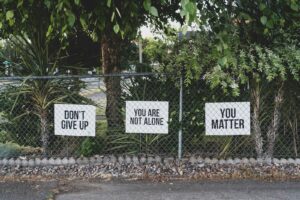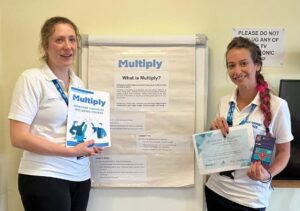Deborah Kelly: What is mindfulness and how can it help me?
Deborah Kelly, qualified mindfulness teacher and director of Your Best Life, discusses how mindfulness can teach us to be kind and compassionate to ourselves.
‘I do matter… I’ve realised it’s so important to make time to look after myself before I can look after or help others, despite it being ingrained in me that I should look after others first’. This is one of the take-aways my course participant fed back as we came to the end of the Mindfulness for Stress course I’d just facilitated.
It sounds like such a simple thing to do, and yet many of us always put others before ourselves, putting ourselves last on our to do list, thinking it’s being selfish to take some ‘me-time,’ when actually, it’s essential to living a healthy balanced life.
Sometimes our minds are so busy, overrun with thoughts or worries, it is not surprising that we can feel overwhelmed, stressed, and anxious.
In these challenging times of living through Covid-19, the worry, the isolation, I see lots of people who unsurprisingly have felt the strain, difficulty and stress of trying to juggle and cope with everything that’s going on for them.
Mindfulness is like a gym work out for the brain and our wellbeing. It is about being in the present moment, noticing our thoughts, feelings, and emotions.
In times of difficulty, anxiety, or stress, we can learn to be kind and compassionate to ourselves – rather than the harsh, judgemental, and self-critical way we tend to treat ourselves.
With regular practice, it enables us to step out of automatic habitual reactions and make better choices for ourselves.
I began my mindfulness journey after a difficult period in my life. I was someone who was generally quite anxious, and I felt it was getting worse. I started to get panic attacks and felt I had to do something about it as it was starting to put me off doing things that I wanted to do.
I had done lots of meditations on apps, which really helped me. I was curious to see if I could develop this further because I knew it was helping and I had heard and read about how good for you meditation can be.
What really made the difference for me was going on a mindfulness course. The compassionate teaching and the mindfulness meditations really enabled me to notice and understand more about how to manage my thoughts rather than letting them overwhelm me and learn to understand how this affected my emotions and my body.
I knew I carried my stress and emotions in my shoulders. I kept noticing myself hunching up automatically, and I could not seem to shift it, to stop it, to let my shoulders relax, and for me to feel relaxed.
Others often tell me it is the same for them, only that they feel stress in the neck, jaw, chest, hands, or stomach.
Mindfulness made such a difference to me that I made a career change, leaving my corporate role and training with MIND to become a Mindfulness Teacher, enabling me to help others build this key life skill for themselves.
If you have not tried mindfulness, then it is best experienced practically to understand how it can help.
Our breath is so simple and powerful to use when we are feeling caught up in thoughts. It sounds easy, and yet it’s not…. people often tell me they cannot just sit down for any length of time and just notice their breath.
By focusing on our breath, we can learn to manage the constant train of thoughts coming in our minds, just focusing on one thing, and not feeling like we need to multitask.
Try it for one minute:
- Get into a comfortable posture for your body (sitting upright, lying down, or standing). Either closing your eyes or having an unfixed gaze.
- Allowing your spine to follow its natural curve.
- Feeling your body touching the surface it’s resting on.
- Just noticing your breath in this moment.
- Breathing in….and breathing out.
- Repeating this 5 times if you would like to.
- Now noticing the whole of your body. Any sensations that are in the body in this moment.
- And when you are ready, opening your eyes and taking in your surroundings through your senses.
There is a vast amount of science to prove that mindfulness works when practised regularly. Mindfulness creates new neural pathways in our brains (neuroscience) to build new behaviours and habits that serve us better.
As Jon Kabat-Zin, founder of the mindfulness for stress reduction programme, says: ‘You can’t stop the waves, but you can learn to surf.’
Given all the current difficulties around us, coupled with the ever-increasing pressure and pace of life – the life skills of Mindfulness are needed now more than ever! Why not give it a try?
To book a mindfulness session email deborah@yourbestlife.org.uk.
















